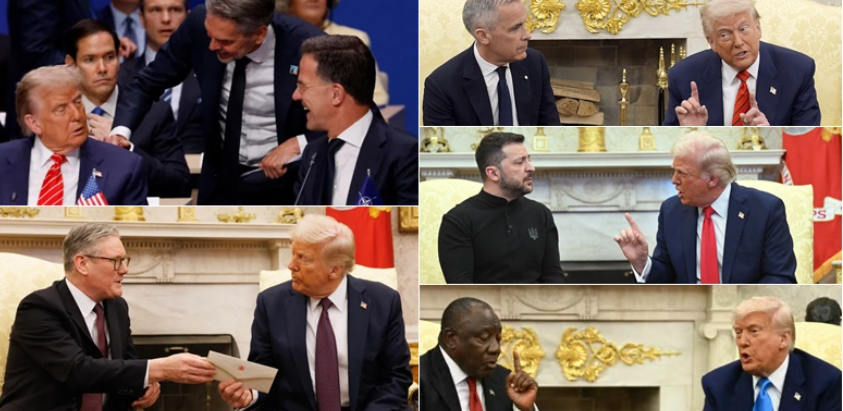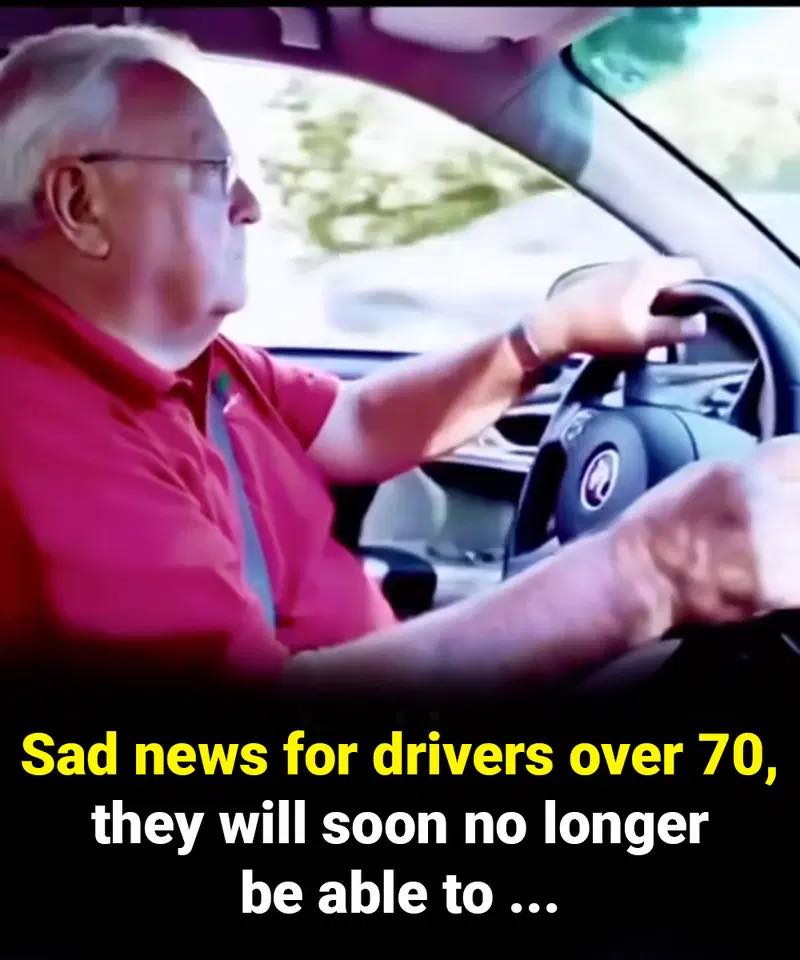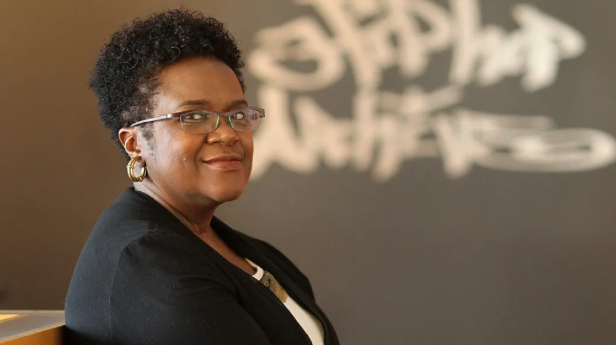Diplomacy or Flattery? Analyzing Leaders’ Praise for Donald Trump and Its Impact
At a press conference ahead of the NATO summit in The Hague this week, US President Donald Trump compared the Israel-Iran conflict to children fighting in a schoolyard, who are eventually separated by adults.
“Daddy sometimes has to use tough language,” Trump remarked.
In response, NATO Secretary-General Mark Rutte echoed the sentiment, saying, “Daddy sometimes has to use tough language.”
The White House also played along, releasing a video of Trump’s visit to the Netherlands, set to Usher’s song “Hey Daddy.”
However, Rutte’s praise for Trump did not end there. According to Al Jazeera, as reported by the Telegraph, Rutte also commented on the Russia-Ukraine war: “When he came to office, he started a dialogue with President (Vladimir) Putin, which I always thought was essential. And I believe only one leader could resolve the deadlock — the American president, because he is the most powerful leader in the world.”
This raises a broader question: How genuine are the statements from world leaders about Donald Trump? Do such words truly foster better bilateral relations, and does flattery have any real influence?
Who Has “Treated Trump Well,” and What Are the Outcomes?
The Al Jazeera article notes that since the summer of 2022 — the year Russia invaded Ukraine — most European leaders have largely ceased engaging in dialogue with Vladimir Putin, deeming such efforts futile.
For instance, German Chancellor Olaf Scholz faced criticism as a “defeatist” after his phone call with Putin last November. Meanwhile, Hungary’s Viktor Orbán and Slovakia’s Robert Fico, the only European leaders to visit the Kremlin during the war, have been viewed as outspoken allies of Russia.
Conversely, when Trump engaged in talks with Putin, many European leaders extended similar praise. After Trump’s inauguration in January, some paid him compliments akin to Rutte’s remarks.
A Notable Example: UK’s Keir Starmer
In February, UK Prime Minister Keir Starmer told Trump in the Oval Office: “Thank you for changing the conversation to bring up the possibility that we can now have a peace deal, and we will work with you.”
Starmer also presented Trump with a letter from King Charles III, inviting him for a second state visit to Windsor Castle — an unexpected gesture that seemed to catch Trump off guard.
“Your country is a fantastic place, and it would be an honour for us to be there. Thank you,” Trump said as he composed himself during a meeting.
Starmer and Trump exchanged several handshakes, with Starmer repeatedly touching Trump on the shoulder as a sign of affection.
But did all this flattery have any meaningful impact?
According to reports from Al Jazeera, Trump announced the following month that he would be cutting off military aid to Ukraine, a decision that sparked widespread outrage from the UK, as well as Nordic and Baltic countries.
Giorgia Meloni, Italy
Both UK Prime Minister Keir Starmer and Italy’s Prime Minister, Giorgia Meloni, recognized Ukraine as a key issue in Trump’s diplomatic approach. Trump has expressed a desire to win the Nobel Peace Prize by ending international conflicts.
He has claimed credit for ending the “12-Day War” between Israel and Iran, preventing nuclear escalation after the May 7 air clash between India and Pakistan, and facilitating a peace agreement between the Democratic Republic of Congo (DRC) and Rwanda.
Meloni also adopted a similarly flattering approach toward Trump, aiming to strengthen diplomatic ties.
Diplomatic Words and Their Limitations: Meloni and Carney’s Interactions with Trump
“Together, we have defended Ukraine’s freedom. Together, we can build a just and lasting peace. We support your efforts, Donald,” Italian Prime Minister Giorgia Meloni declared during her visit to the White House in April.
She even adapted Trump’s famous slogan, “Make America Great Again,” for Europe, stating, “The goal for me is to Make the West Great Again. I think we can do it together,” to a cheering Trump.
However, despite this flattery, it has not resulted in a state visit by Trump to Rome — a move that could have solidified Meloni’s stature as a leading European figure, according to Al Jazeera.
Mark Carney, Canada
Meanwhile, newly elected Canadian Prime Minister Mark Carney adopted a mixture of praise and firmness in his dealings with Trump last month.
He complimented Trump as a “transformative president” who had supported “the American worker,” but also made it clear that Canada would not be part of any territorial ambitions.
“It’s not for sale, it never will be for sale,” Carney asserted, firmly rejecting any notion of Canada being annexed or absorbed by the United States.
Shifting Relations: From Carney to Macron
Relations appeared to improve after Trump’s fallout with Justin Trudeau, Carney’s predecessor as Canadian Prime Minister.
During the 2018 G7 summit in Canada, Trump criticized Trudeau, calling him “very dishonest and weak” before departing.
However, Carney’s influence may have been limited. Recently, Trump ended trade negotiations with Canada and threatened to impose additional tariffs on exports, citing Canada’s new digital services tax as a barrier.
The Worst Meetings
Emmanuel Macron, France
As Al Jazeera recounts, Trump’s meeting with French President Emmanuel Macron at the White House in February was notably cold.
Prepared for a confrontation with a leader who positions himself as Europe’s strategic thinker, Trump delivered lengthy, defensive, and scripted remarks defending his policies toward Ukraine.
Macron emphasized that peace in Ukraine should not mean surrender — a view shared by many European leaders but not openly expressed to Trump. While Trump remained “cordial to Macron,” the relationship lacked warmth and affection.
France’s Push for Concessions and Tensions Among EU Leaders
Meanwhile, France is advocating for any form of capitulation to Trump in the European Union’s ongoing trade negotiations.
Other EU member states are also considering an “asymmetric” trade deal that could favor the US more than the EU, simply to reach an agreement.
Furthermore, after the G7 summit in Canada two weeks ago, it was evident that relations between Trump and Macron remain strained. On June 17, Trump took to social media to label Macron a “publicity swindler,” highlighting the continued discord between the two leaders.
Volodymyr Zelensky, Ukraine
Ukrainian President Volodymyr Zelensky faced sharp criticism from Trump and Vice President JD Vance during his visit to the White House on February 28. Zelensky had gone there to sign a mineral rights deal, hoping it would lead to increased U.S. military aid.
During the meeting, Zelensky and Vance clashed over direct negotiations with Russia concerning Ukraine. Vance sharply criticized Zelensky for allegedly failing to show enough “gratitude” toward the U.S.
“You’re playing with the lives of millions of people. You’re playing with World War III,” Trump remarked, underscoring the tense atmosphere.
Zelensky and Trump’s Reconciliation
However, Zelensky and Trump appeared to reconcile somewhat when they had an impromptu meeting during Pope Francis’ funeral at the Vatican in April.
A White House spokesperson described the encounter as “very productive.”
Cyril Ramaphosa, South Africa
Last month, Trump “ambushed” South African President Cyril Ramaphosa at the White House by showing him a video of a South African opposition rally advocating for the eviction of white farmers.
Trump accused South Africa of committing “genocide” against white farmers.
Ramaphosa was visibly upset but calmly explained that, under South Africa’s parliamentary system, different views are expressed that do not necessarily reflect government policy. He also noted that South Africa is a country plagued by violence, where most victims of violence are Black.
Ramaphosa Calms Trump, Flattery and US Relations
“You are a partner of South Africa, and as a partner, you are raising concerns that we are willing to discuss,” Ramaphosa said, somewhat soothing Trump’s agitation.
Trump then diverted the conversation by talking about a Jumbo Jet gifted to him by Qatar during his Middle East tour.
“I’m sorry I don’t have a plane to give you,” Ramaphosa responded, seemingly making a virtue of his lack of flattery.
Does “flattering Trump” work?
Some experts believe that flattery can help prevent confrontations with Trump. Others argue that it serves to “contain the impulses of the American president.” However, as Al Jazeera reports, flattery does little to influence current U.S. policies.
NATO and US Relations
Meanwhile, Rutte and other NATO leaders failed to persuade the U.S. to re-engage with the Contact Group by providing more weapons to Ukraine.
“A summit solely aimed at making Trump feel good has very limited goals. It merely postpones hard decisions until another day,” wrote Andrew Gawthorpe, a historian and international studies expert at Leiden University in the Netherlands, in The Conversation.
As the article points out, those on good terms with Trump do not necessarily get what they want. For example:
- Sir Keir Starmer’s US-UK trade deal keeps tariffs on British exports to the U.S., though lower than Trump’s initial threats.
- Italian Prime Minister Giorgia Meloni is still waiting for Trump to “gift” her a visit.
Shifts in US Foreign Policy
On the other hand, a respectful and resolute approach appears to be effective. Trump has abandoned efforts to redraw U.S. borders by annexing Canada and Greenland, which is owned by Denmark.
Carney’s firm stance helped, as he conveyed a sense of finality. After winning an election, Carney acknowledged, “It was probably one of the greatest comebacks in the history of politics. Maybe even bigger than mine.”
Denmark has also shown resolve. Prime Minister Mette Frederiksen stated that existing agreements with the U.S. already permit the establishment of military bases in Greenland, but the Greenlandic people do not want to be colonized by Americans.
US-Ukraine and South Africa
Regarding Trump’s “efforts” with Zelensky and Ramaphosa, Europe has stepped in to compensate for the lack of U.S. military aid to Ukraine, portraying the U.S. as an unreliable ally.
As for Trump’s “white genocide” video, it failed to convince Americans that South Africa is committing genocide.




